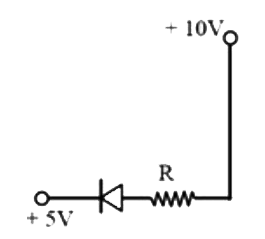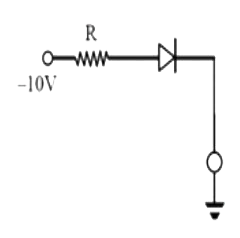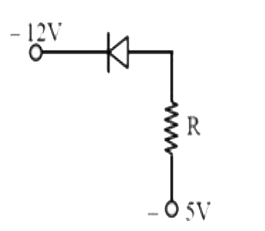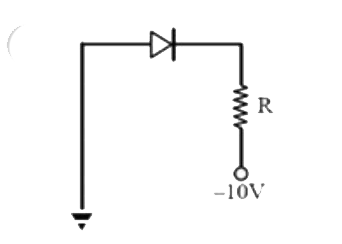The current in the forward bias is known to be more (in mA)
than the current in the reverse bias (in μA ). What is the reason then to operate
the photodiodes in reverse bias?
In case of n-type semiconductor, let n be the majority carrier (i.e., electrons) density and p be the minority carrier (holes) density. Where n>p. On illumination of semiconductor, there will be production of equal number of electrons and holes. Let Δn,Δp be the increase in majority carrier density and minority carrier density due to illumination of semiconductor, where Δn=Δp. Hence, fractional change in majority carrier (=Δn/n), fractional change in minority
carrier (=Δp/p). Since n>>p, so Δnn<Δpp
it means, due to photo-effects the fractional change due to minority carriers dominates. As a result of it, the fractional change in the reverse bias current is more easity measurable than the fractional change in the forward bias current. It is due to this reason, photodiodes are preferably used in the reverse bias condition for measuring light intensity.
Topper's Solved these Questions
- ELECTRONIC DEVICESBOOK - PRADEEPCHAPTER - ELECTRONIC DEVICESEXERCISE - SAMPLE PROBLEM
2 Videos
- ELECTRONIC DEVICESBOOK - PRADEEPCHAPTER - ELECTRONIC DEVICESEXERCISE - CONCEPTUAL PROBLEMS
1 Videos
- ELECTROMAGNETIC WAVESBOOK - PRADEEPCHAPTER - ELECTROMAGNETIC WAVESEXERCISE - II Focus multiple choice question
5 Videos
- ELECTROSTATICSBOOK - PRADEEPCHAPTER - ELECTROSTATICSEXERCISE - ASSERTION-REASON TYPE QUESTIONS
2 Videos
Similar Questions
The current in the forward bias is known to be more (~ mA) than the current in the reverse bias (~μA). What is the reason, then to operate the photndiode in reverse bias ?
View SolutionThe current in the forward bias is unknown to be more (~mA) than the current in the reverse bias (~μA). What is the reason then to operate the photo diodes in reverse bias ?
View Solution
Knowledge Check
In the figure, which of the diode is in reverse bias
A B
B C
C D
D
In which case is the junction diode is not reverse bias-
A B
B C
C D
D
The current in the forward bias is unknown to be more (~mA) than the current in the reverse bias (~μA). What is the reason then to operate the photo diodes in reverse bias ?
View SolutionDraw a p-n junction with reverse bias
View SolutionAssertion (A) : Eventhough forward bias is known to be more (mA) than the current in the reverse bias (μA), photodiodes are still used in reverse bias.
Reason ( R) : The fractional change in majority charge carriers woulb be much less than that in minority charge carriers due to photo-effects so that minority carrier reverse bias current is more easily to measure with photo diodes than majority carrier forward current.
View SolutionDraw a p-n junction with reverse bias
View SolutionWith what considerations in view, a photodiode is fabricated ? State its working with the help of a suitable diagram.
Even though the current in the forward bias is known to the more than in the reverse bias. yet the photodiode works in reverse bias What is the reason ?
View SolutionWith what considerations in view, a photodiode is fabricated ? State its working with the helpP of a suitable diagram.
Even though the current in the forward bias is known to be more than in the reverse bias, yet the photodiode works in reverse bias. What is the reason ?
View Solution
